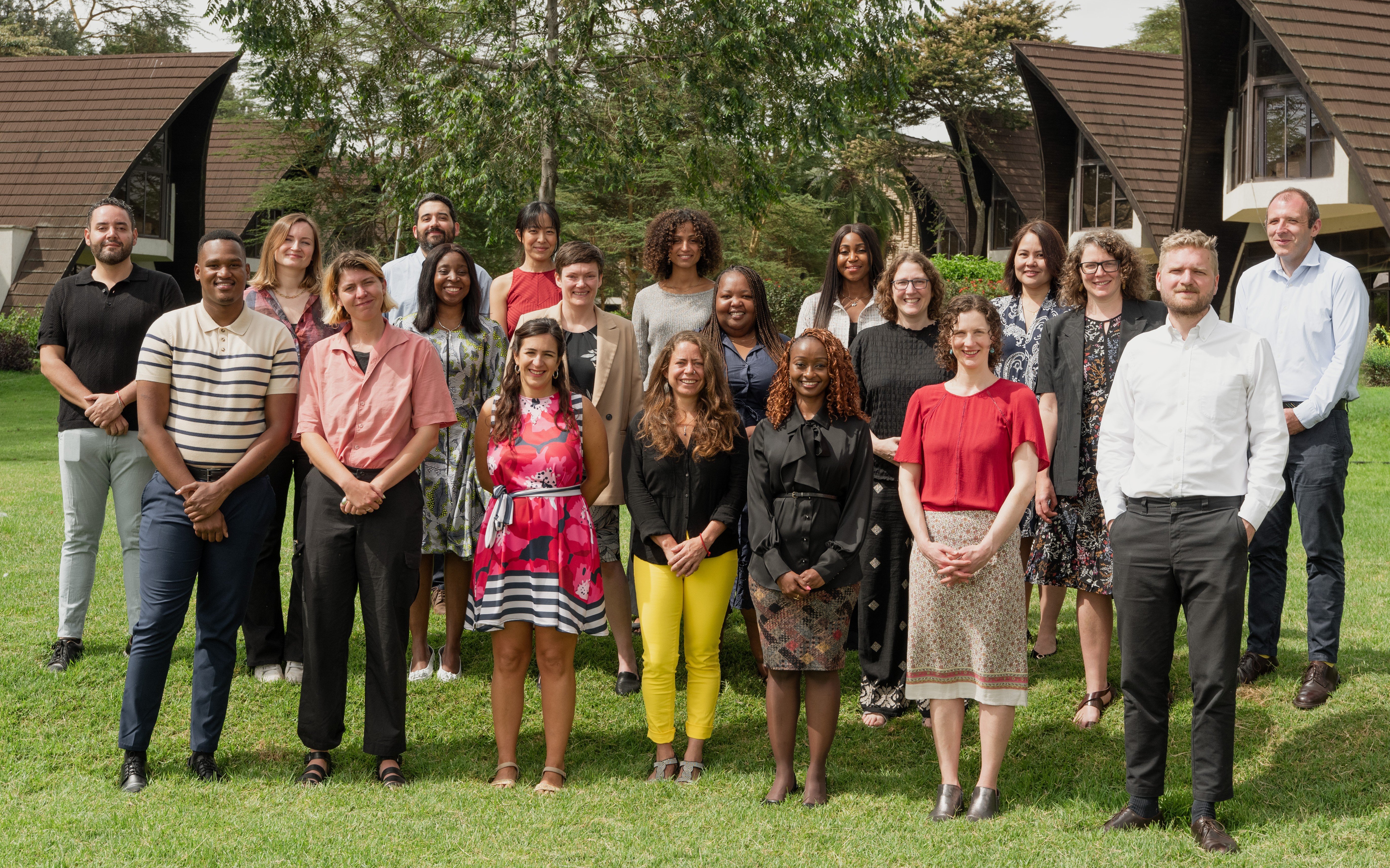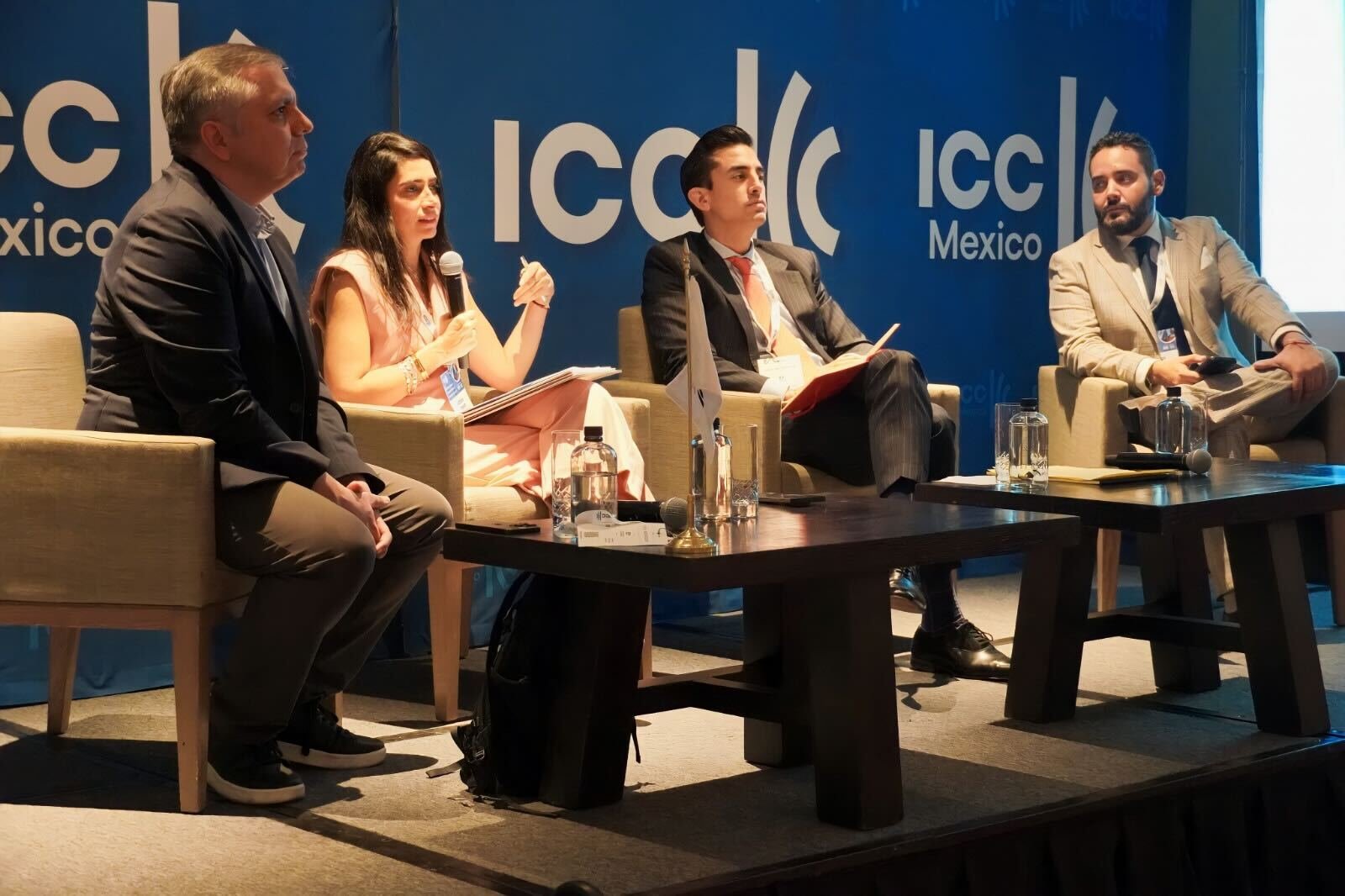From transparency to trust: Open Ownership strategy 2025 to 2030
Open Ownership’s approach
OO occupies a unique position in the ecosystem of actors that support and advance BOT and deliver impact from using beneficial ownership data. We operate independently of any one government using a non-profit model and have substantive first-hand experience as a trusted technical partner to those implementing reforms. Given this, we are able to invest in creating public goods and catalyse work in frontier and challenging aspects of BOT that are not yet well covered by other actors.

As a globally dispersed organisation, the OO team meets up once a year for strategic planning and team-building.
OO is uniquely placed to do this work in the following ways:
- Through our deep relationships worldwide – with government agencies, civil society, academics, and international institutions – we have early visibility of new and emerging issues and areas where BOT can help achieve economic and social benefits.
- We explore and test these through initial implementation work, foundational research, data analysis, and experimental technological tools.
- We work in partnerships with government agencies, civil society actors, software providers, and others to jointly solve problems in specific contexts, and to advance BOT on the international policy agenda. We try not to replicate what others are better placed to do (e.g. drafting laws, developing software solutions, or taking/advocating for positions in adjacent policy areas).
- We work in-depth in specific national contexts to achieve concrete outcomes, but also maintain a breadth of engagement to de-risk our work given inevitable pauses and changes within priority contexts, and to create opportunities for tackling specific queries that progress our understanding of implementation.
- We harvest learning from this work and further research what is needed to realise the benefits and impacts of BOT for priority use cases.
- We use and contextualise these lessons in our work with countries to support implementation of BOT reforms and use of beneficial ownership data, and to further shape our research agenda.
- We advocate regionally and internationally to get these changes to scale and shape global norms and practices.

OO spoke on regional BOT progress in the Americas with a focus on the potential use of beneficial ownership data in multiple sectors during the 6th International Anti-Corruption Congress in Mexico.
Building on successes to date
During our 2022–2025 strategy, we helped deliver real progress toward making company and asset ownership more transparent and accountable worldwide. [7] Here are some of our key achievements since 2022:
We directly supported reforms in over 20 countries
We advanced reforms to improve BOT in more than 20 countries, supporting governments to create laws, business processes, and digital systems needed to prevent the abuse of anonymous companies, and we directly supported the creation of 15 new beneficial ownership registries.
We raised the bar for BOT reforms internationally
We contributed to stronger global standards, including improved recommendations from the FATF, two new UN Convention against Corruption resolutions promoting the use of ownership data, and new commitments at the UN to improve the cross-border sharing of ownership information.
We equipped governments, businesses, and civil society to use ownership data
We trained and supported over 2,000 people across four continents – including government officials, CSO representatives, journalists, and business professionals – to understand and use ownership data.
We built collective action, especially in Africa and Asia
We helped bring together people and institutions across Africa and Asia to broaden momentum to advance BOT, and were pivotal to establishing two international government-led networks (the Beneficial Ownership Leadership Group and the Africa BOT Network).
Endnotes
[7] Open Ownership, Open Ownership Strategy: From transparent to accountable ownership – 2022-2025 (Open Ownership, 2022), https://oo.cdn.ngo/media/documents/Open_Ownership_Strategy_2022-2025.pdf.